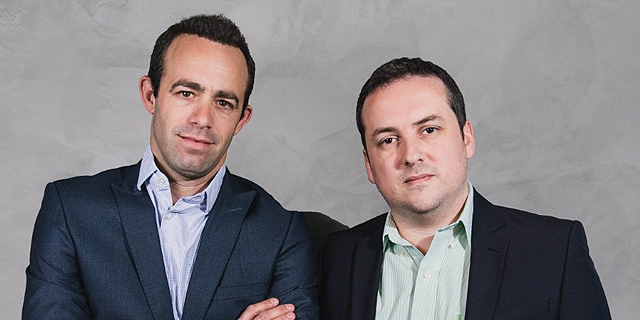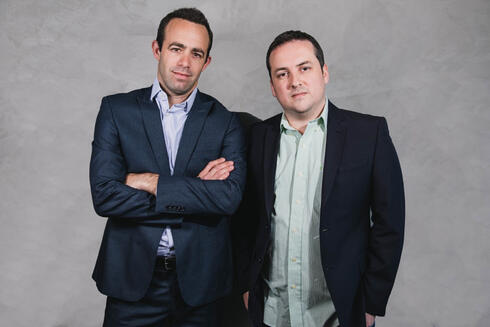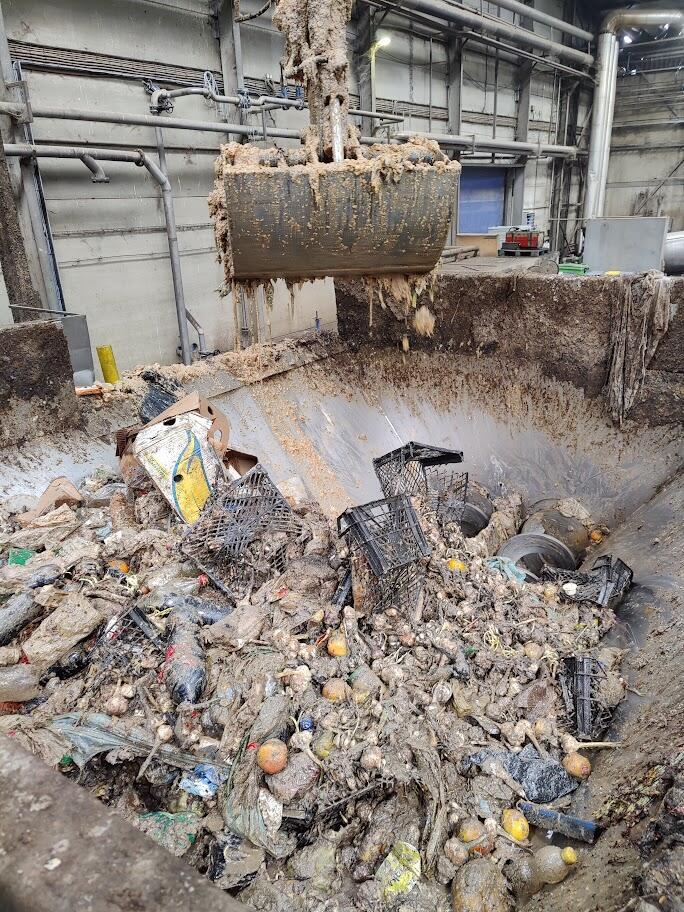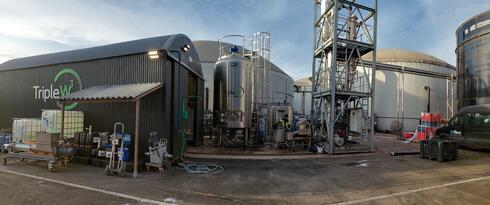
Interview
TripleW applies Israeli ingenuity to make waste history
Through their pioneering efforts in producing lactic acid from food waste to create bioplastics, a pair of childhood friends, Tal Shapira and Amir Oranim, are turning trash into treasure
Since they first met on the playground of their kindergarten in Ra’anana at the age of 4, Tal Shapira and Amir Oranim, the co-founders of Israeli startup TripleW, have been joined at the hip. “We were in the same class in elementary school, junior high, and high school,” Shapira says. “We took different paths in our army service, but never lost touch.”
Shapira’s background is in chemistry and biology, while Oranim went off to work in the legal and financial business world, first at a law firm and then at Ernst & Young. Shapira is a graduate of the Weizmann Institute where he studied many production processes using microorganisms to produce various products. He also studied under the supervision of 2009 Chemistry Nobel Prize-winner Prof. Ada Yonath. From there he went on to a career in business development in biotechnology, but in 2013, he returned to Weizmann as part of Yeda, the commercial arm of the institute. It was there that he caught the climate change ‘bug’, knowing he wanted to do something impactful for the good of the planet.
“When I was back at Weizmann I understood that there was a fantastic business opportunity, and of course a climate opportunity, in producing lactic acid from food waste,” Shapira said. “So I called up my old friend Amir and asked him to use his business know-how to help me validate that this technology also makes business sense.”
“Tal came to me with his idea to convert food waste into biochemicals,” Oranim said. “So we began modeling it in very preliminary financial models and performing some proof of concept here in Israel and we saw that it made sense, so we started the fundraising stage.”
Co-founded in 2016 by Shapira, who serves as CEO, and Oranim, the COO, TripleW has raised $19 million in total; of which $7 million was obtained in grants and $12 million in equity financing rounds.
Why is your company called TripleW?
“This was Amir’s idea,” Shapira said. “‘TripleW’ stands for a triple ‘win’ - a win for food waste management, a win for materials production, and a win for the environment because the materials that we produce are made from 100% renewable carbon.”
What sort of waste do you use?
“Although we can handle all sorts of food waste streams, our business focus right now is commercial and industrial food waste,” Shapira explained. “These streams are mainly food waste coming from large catering services, restaurants, food processing facilities, dairies, bakeries, but the bulk of the food waste we treat comes from supermarket logistic returns, whether from the large logistic centers or from the grocery stores themselves. It can be rejected food produce, expired products, etc.
“We tap into the infrastructure of the food waste management companies. They are already collecting all this food waste and removing the packaging from it and we get basically just the food waste itself, without any of the packaging, which goes through other routes of recycling or upcycling.”
What about organic foods?
“Organic disposal is a big problem and taxpayers are paying the price,” Shapira said. “What we bring to the table is a process that can convert them into a resource and turn food waste into something useful and a raw material for the industry. So we are basically making biochemicals and bioplastics from food waste to replace oil and gas. Don’t get me wrong, plastics made from oil and gas are here to stay, but we can offer an alternative, instead of using oil one can use food waste as a resource for the production of these materials.”
How does the process work?
“What we developed over the last six years, with our amazing R&D team both in Israel and in Belgium, is a process of fermentation. The process is actually comparable to making pickles. We have our unique microorganisms that we add to the food waste and they start producing the lactic acid. This acid is basically trapped in this brown mess, which is the mixed food waste. So we have developed a chemical recovery and purification process that separates the lactic acid from all the other components in the waste and that is what is sent back to our partner’s site for the production of energy. And we continue to treat the lactic acid until it is a purified product that can be sold in the market. That’s exactly what we do with our partner in Belgium.”
So what does the lactic acid become?
“It becomes many things,” Shapira said. “In fact, when you go to your local supermarket you’d be amazed how many products, if you read the labels closely, are made from lactic acid. It’s in almost every product in every aisle. It’s in the homecare cleaning products (toilet cleaner, dishwashing liquid, fabric softener) and in foods and beverages - it’s a preservative and a flavor adjustment agent in drinks and processed foods, you’ll find it also in personal care products like shampoo and creams, so it’s an established market and we are basically producing a generic product.
“But the highest growing market segment for lactic acid is its use in the production of PLA (polylactic acid) which is a bioplastic used primarily in food and beverage packaging - and also in textiles and 3D printing and more. It can replace fossil-based plastics in nearly 80% of the plastic applications.”
So this is a real example of the circular economy, right?
“Exactly. For example, we work with a large bakery that gives us old, moldy croissants and we can use our process to turn those baked goods from food waste into packaging for another fresh batch of baked goods. This is no longer a ‘pie in the sky’ dream or theory, we can take that old pie which is no longer edible and turn it into something usable, like packaging for a new pie.”
You are an Israeli startup, yet your large factory is in Belgium.
“We are a proud Israeli company, our headquarters are in Israel and we are delivering Israeli know-how to the world, but our ambition is to go global and establish our technology in multiple facilities across the U.S. and Europe first. We have fantastic partners who are interested in deploying our technology in multiple sites and yes we have a subsidiary in Belgium with a fantastic team of engineers there with whom we work very closely and who designed and now operate the factory very successfully. In Europe on the whole we have found amazing people who are very receptive and passionate about climate change. Our plant in Belgium currently handles a capacity of 15 tons of food waste a day and we are designing new full-scale facilities in a few countries around the world with a goal for the first of those to handle a capacity of 500 tons per day. There is no shortage of food waste, so we’ll always be busy. As for Israel, we would really love to establish a facility here in Israel too, and I hope that will happen in the coming years.”
Related articles:
How did the Covid-19 pandemic affect TripleW?
“We were all set to build the plant in Belgium, but the pandemic came and shut everything down in Belgium and the contractors did not get back to us, setting our plans back seven months. But finally we decided we could not wait anymore and we decided to build the facility here in Israel and then shipped it over to Belgium piece by piece, part by part.”
Is TripleW a pioneer in this field?
“Lactic acid was traditionally produced from corn and sugarcane, but we are the first to . produce it from food waste. I can tell you that in the late 1990s, industry and academic institutions started talking about making lactic acid from food waste and you can find academic publications discussing it,” Shapira said. “These publications are what first inspired me to investigate it, but we said to ourselves, everyone’s talking about, but nobody has put on their gloves and put their hands in the trash to do something about it. So that’s what we did. Now we are in a position where there are other companies trying to do what we do, but because we started early, we are the most advanced and we are the only ones who are actually selling food waste-based lactic acid. So, yes, you can definitely say we are pioneers and we hope to remain on top for a long time because we have this advantage and we’ll keep going.”


